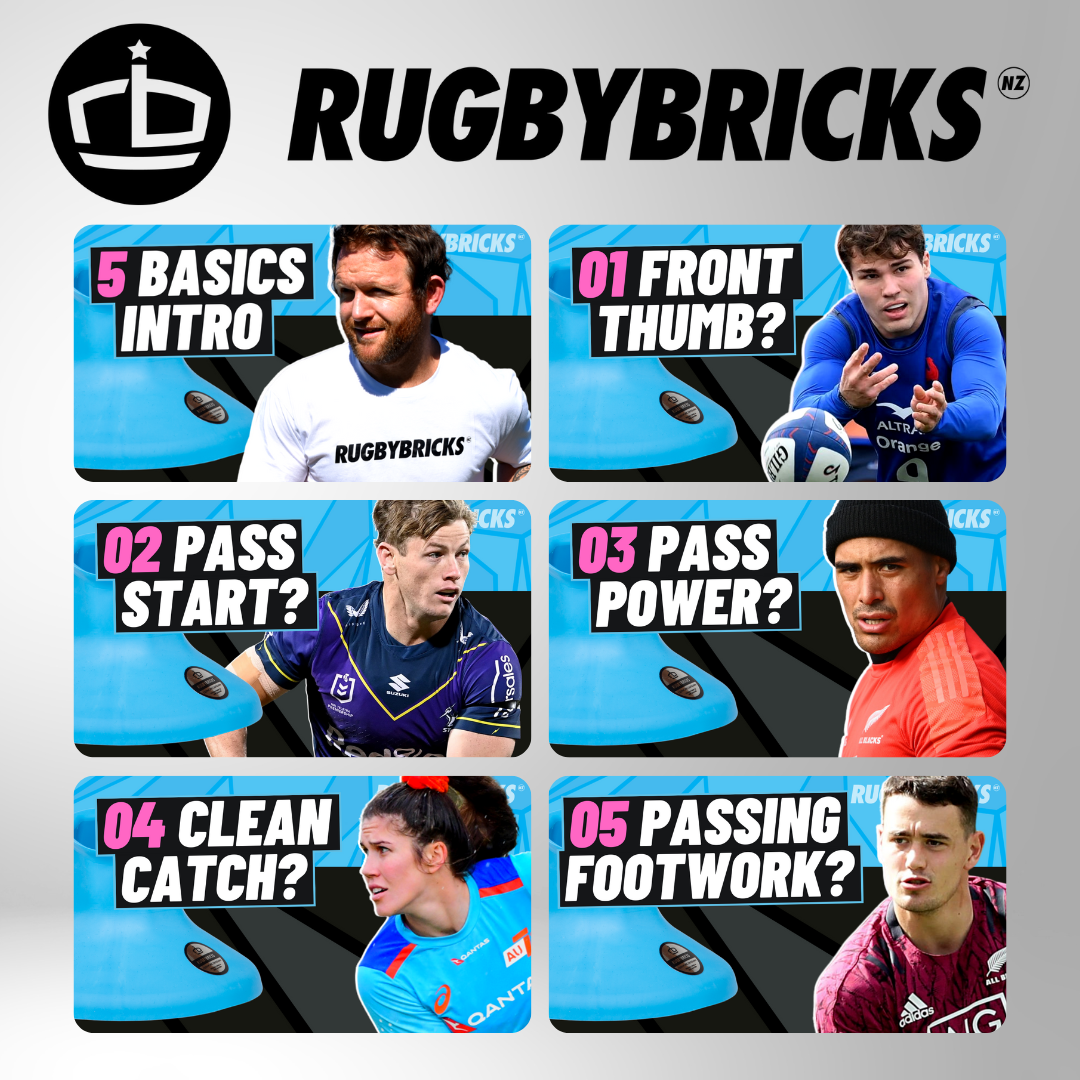Welcome to the Rugby Bricks blog, where we delve into the essentials of rugby coaching and the development of players. As a coach, your role extends beyond the pitch; it's about instilling the right techniques, mindset, and skills that will empower your players to excel. Today, we focus on five core skills every rugby player must master: passing, running, support play, decision-making, and tackling. We'll provide you with practical coaching cues and drills to enhance your team's performance in each area.
1. Passing: The Foundation of Team Play
Passing is the heartbeat of rugby, enabling fluid team play and setting the stage for offensive strategies.
Coaching Cues:
- Hand Positioning: Encourage players to keep their hands up and ready, forming a W shape behind the ball for stability and control.
- Body Alignment: Players should square their hips and shoulders to the target, ensuring a direct and powerful pass.
- Follow-Through: Teach players to point their hands towards the target post-release to ensure accuracy.
Drills:
- The Triangle Passing Drill: Enhances passing accuracy and timing with quick, repetitive exchanges in a triangular formation.
- The Box Passing Drill: Focuses on passing accuracy and communication within a square setup, promoting spatial awareness.

2. Running: Speed and Agility
A player's ability to run effectively dictates their capacity to exploit gaps, evade tackles, and support teammates.
Coaching Cues:
- High Knees: Emphasize the importance of high knee lifts to improve stride length and frequency.
- Ball Security: Instruct players to keep the ball in two hands whenever possible, allowing for quick passes or fends.
- Agility: Encourage quick, light footwork and the ability to change direction swiftly.
Drills:
- High Knees: Develops leg strength and running form, serving as an excellent warm-up.
- Butt Kicks: Targets the hamstrings and refines running form, enhancing leg speed.
3. Support Play: Being There for the Team
Support play is about positioning and readiness to back up a teammate, whether through taking a pass or securing the ruck.
Coaching Cues:
- Anticipation: Teach players to read the game and predict where they need to be before the play unfolds.
- Communication: Stress the importance of calling for the ball and indicating support positions.
- Endurance: Condition players to maintain support play throughout the match without fatigue.
Drills:
- Shadow Support Drill: Players follow the ball carrier, mirroring their movements and staying in support positions.
- Ruck Support Patterns: Practice quick ruck formations with emphasis on body positioning and securing the ball.
4. Decision-Making: The Tactical Edge
Rugby is a game of split-second decisions that can change the outcome of a match.
Coaching Cues:
- Vision: Encourage players to keep their heads up and scan the field constantly for opportunities and threats.
- Risk Assessment: Teach players to weigh the potential gains against the risks before making a play.
- Adaptability: Instruct players to adjust their decisions based on the unfolding game and the opposition's tactics.
Drills:
- Game Simulation: Small-sided games that replicate match scenarios and encourage quick thinking.
- Decision-Making Trees: Use theoretical scenarios to discuss potential choices and their consequences.
5. Tackling: The Art of Defense
Effective tackling is not just about stopping the opposition; it's about doing so safely and legally.
Coaching Cues:
- Body Positioning: Players should approach with a low center of gravity, keeping their heads up and back straight.
- Target Zone: Aim for the area between the hips and knees for a secure and safe tackle.
- Leg Drive: After contact, encourage players to drive with their legs to ensure the ball carrier is brought to the ground.
Drills:
- Tackle Bag Drill: Allows players to practice technique on a moving target without the risk of injury.
- Two-on-One Tackling Drill: Improves decision-making and tackling effectiveness in outnumbered situations.
By focusing on these five core skills and using the provided coaching cues and drills, you can significantly improve your team's performance on the field. Remember, the key to success in rugby coaching is consistency, repetition, and positive reinforcement. Equip your players with the tools they need to succeed, and watch as they transform into a cohesive, skilled, and formidable team.
